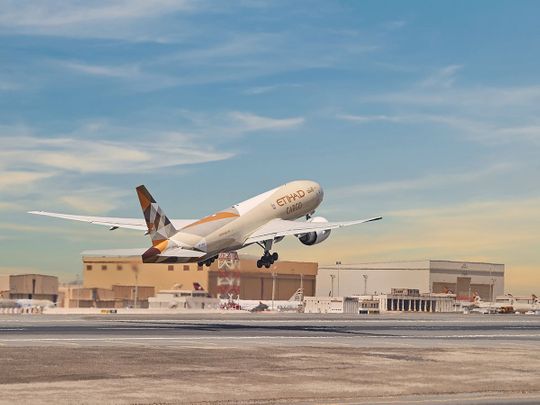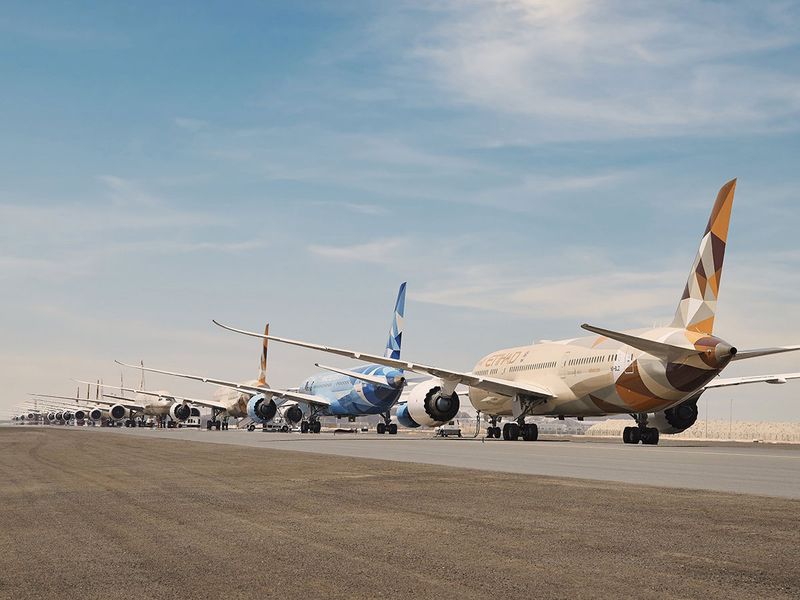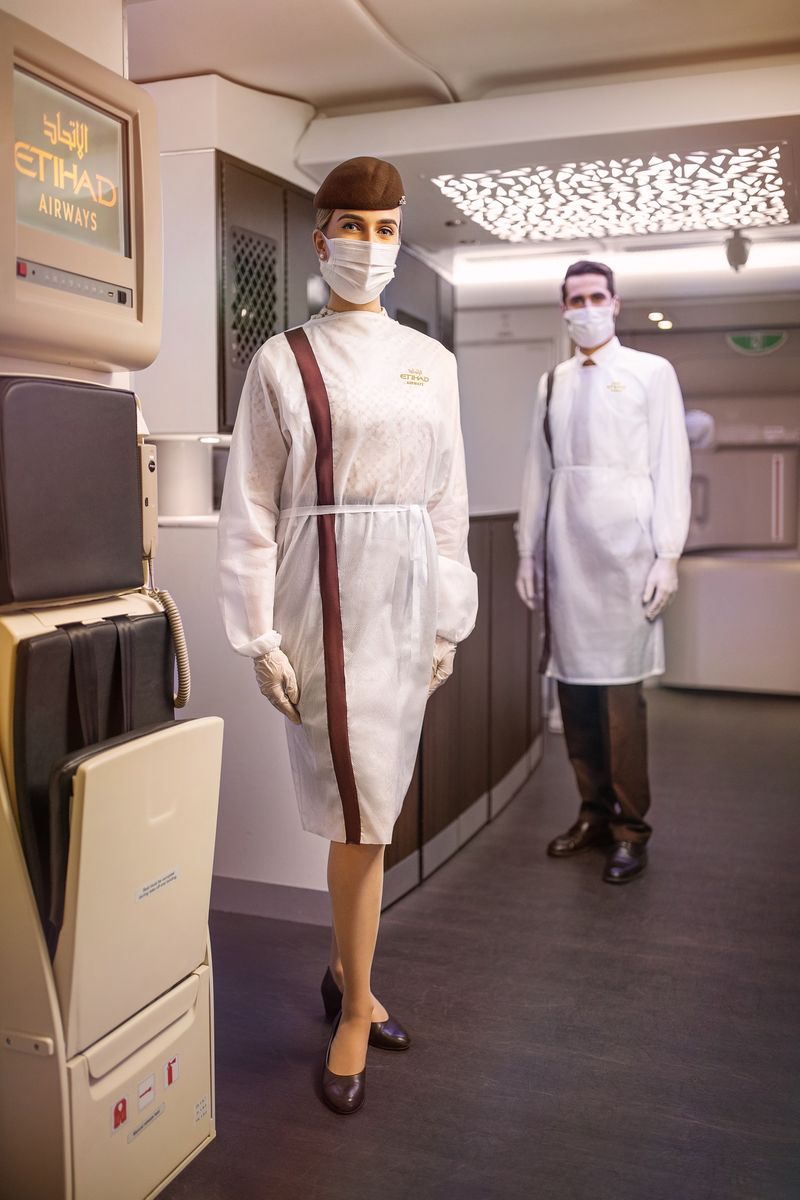Cargo is delivering best results for UAE's airlines in tackling COVID-19 crisis

Dubai: Operating more cargo flights has been the boost UAE’s national airlines needed to see through the biggest crisis in nearly two decades. And as they await passenger travel to get back to pre-COVID-19, cargo will continue to provide the backup for the carriers.
Abu Dhabi’s Etihad Airways saw its cargo division turn in the best monthly performance since 2015 in April, and May’s numbers are looking just as solid.
Etihad Cargo operates 150 turnaround flights a week to 39 destinations. In addition to scheduled services, the carrier also has special freighter and humanitarian flights to Europe, Africa and Asia.
“This facilitates the UAE’s food, medical and other supplies required during the pandemic,” said Akram Alami, Chief Transformation Officer at the airline. “We are an arm of the government when it comes to providing humanitarian relief to other countries.
“We are using 22 Boeing 787 Dreamliners and our 777-300 as passenger aircraft to lift cargo. We also have five more aircraft ready to serve - if needed - and that complements our five 777-200 freighters.”
UAE’s other carriers, Emirates and Air Arabia, too have seen cargo pull its weight since March, when passenger services were halted to combat the pandemic.
Etihad was flying to 76 destinations in March before it grounded passenger flights. As of now, 70 per cent of the fleet is grounded.
But, since March 25, the Abu Dhabi airline also flew 2,300 cargo and special repatriation flights combined.
Ready to fly
Alami would not be drawn into giving specific timelines on how long a slump in passenger demand would continue when flights commence. “To make assumptions by looking into a crystal ball is a risky tactic,” he added, “What matters to us is that we are ready to deploy our aircraft when travel restrictions ease.”
But a relaxation of restrictions such as mandatory quarantine would have a direct effect on demand.
Keeping them in top shape
Etihad is now going through the biggest aircraft maintenance programme in its history, and make sure the fleet that is grounded will come out in the best shape once the pandemic ends.
“We are working on 96 passenger aircraft to bring everything to the best-in-class,” the official added. “This ranges from minor maintenance tasks such as seat repairs and updates to inflight entertainment systems, to bringing forward scheduled engine changes and modifications on several aircraft.
“This will eliminate the need to withdraw them from service when flights begin.”

An eye on costs
With passenger travel all but reduced to a trickle, Etihad has taken preemptive measures to reduce costs. There were layoffs across divisions in May.
“We had taken a series of wide-reaching measures ranging from salary reduction for our employees, payment holiday with lessors and saving discussions with our entire supply chain,” said Alami.
But it has had some help on other fronts. Low oil prices have helped with the operating costs. To double the benefits, the airline deployed its most fuel-efficient aircraft to operate repatriation flights.
“Preservation of cash is extremely important today - oil is expected to stay low in the short to mid-term,” he added, “We have been deploying our most efficient aircraft for these special flights, such as the Dreamliner 787-9s and 787-10s.”

Eventual resumption
Besides the repatriation flights for those stranded in the UAE or bring back UAE residents stuck overseas, Etihad has resumed scheduled services on certain sectors such as Belgrade, Dublin, Geneva, Milan, Paris and Toronto.
The airline launched its regular transit service between Melbourne and Heathrow and vice versa via Abu Dhabi last week. Etihad will maintain this link until it fully resumes the earlier double daily connection between the two cities. (It also added a transit connection between Sydney and London via Abu Dhabi last week.)
The airline has implemented measures such as social distancing on the special flights it has been operating from Abu Dhabi. “A combination of all these will go a long way in helping rebuild customer trust in air travel post this pandemic,” said Alami.


Comments